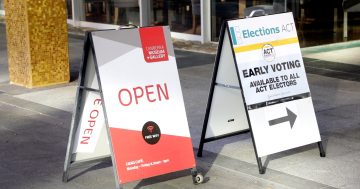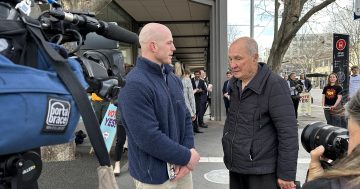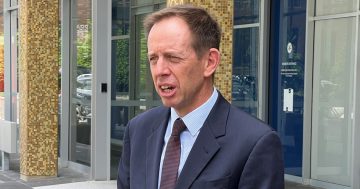
Is it time to change the rules to ensure a turnover in the Legislative Assembly? Photo: Michelle Kroll.
Democracy isn’t broken – but it’s always heading that way. That is why elections are important. That way, we can manage change, maybe by keeping the good politicians or getting rid of the bad ones and getting new faces.
Elections are the events that keep democracy going. I, and many others, are standing as Independents at the ACT election to be held on 19 October.
So, how are we going in Australia with democracy? Pretty good, but it does need a refresh. For example, in the ACT, we see that democracy is stagnant. The ACT has had a Labor-Green government for 23 years. Boring, yes – but also dangerous.
Nationally, we have had either Liberal-Nationals or Labor governments forever. That has worked well – just look at the envy from most other countries for our economy and society. But in recent years, we see independents rising and new parties emerging – a short-term phenomenon or an ongoing fact?
Have they risen due to the failure of political parties on integrity? Due to the Robodebt fiasco; or the environmental failure, or the workplace relations wars that only benefit a few; or with managing the cost-of-living crisis? Or do the major parties just communicate badly?
We do need a refresh because things have changed – a lot. Our population has increased and has become even more diverse. People’s behaviours have changed, and their needs have changed as well. We now have the Internet of Things, smart devices, social media and much more online access to information and communications. We have a plethora of web-based influencers, the dark web online scammers and multi-national technology goliaths collecting all our information and using it who knows how.
People don’t seem to join organisations in the numbers they once did. The major parties do not have the membership levels they once did. Union membership is also at its lowest level ever. So, the catchments for the parties to choose candidates for elections have declined to the point where the major parties truly represent minorities – not society.
How to refresh democracy?
Many countries have Citizen Initiated Referenda, or as I prefer to name it – a People’s Poll. This can be a way of reinvigorating democracy – giving more people a chance to have an impact.
This approach already exists in New Zealand, Switzerland and within various states in the US.
As an example, if enough people ask for a poll, say 5 per cent of all voters, then the government must run that poll and abide by the outcome. The relevant Electoral Office would be the body that receives any petition and acts – after checking that the signatures are from bone fide voters and the quota is reached.
Having a People’s Poll as an option will promote government responsiveness and accountability. If officials ignore the voice of the people through normal day-to-day government, then the people will have an available means to make needed laws.
A People’s Poll will produce open, informed debate on critical issues that otherwise might not be adequately discussed.
Interestingly, the left of politics will argue that the far right would hijack the process; then, the right of politics would argue that the far left would do the same thing. In the end, the majority of people would have a say – not the minority. It can’t be hijacked. These People’s Polls would not happen often – 5 per cent of voters in the ACT is some 23,000 people. But they would be an option for the people. I think the number should be lower – say 10,000 people signing a petition.
There are also other mechanisms for engaging the population, such as People’s Assemblies and Citizens’ Juries – these can also be considered.
The next way to refresh democracy is to get a turnover of politicians. We see politics has become a career for many people. They start as staffers in political offices and then eventually become a politician themselves. Experience of community or anything really is always through the lens of politics. Politicians of any party come from a much narrower membership base than ever before.
Not only could we reinvigorate with a People’s Poll, but we can also ensure new faces by implementing limited terms of 12 years for politicians. Radical, but it is achievable and well worth considering. It would need a referendum for changes to terms in office. I bet people would agree to this proposal – even though the major parties would hate it, especially the factions. Limited terms for individual politicians would change the nature of politics forever.
Politicians are not bad people – there have certainly been some shockers, yet the majority are fine or fine-ish. Many just tend to stay too long. Let’s reboot, refresh and energise our democracy. Let’s prepare it for the continued and unexpected changes facing the future of society and the planet.
Peter Strong is standing for the ACT Government elections in the central electorate of Kurrajong as a member of the Strong Independents.





















